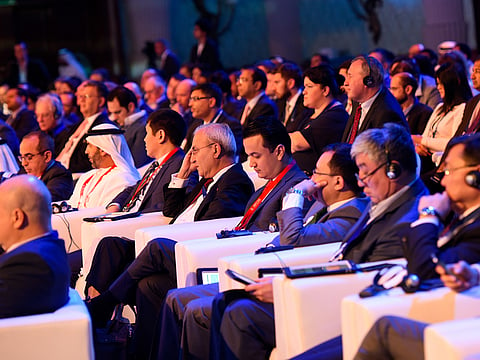GCC-CIS trade growing 20% a year
Although overall trade remains small, there has been consistent growth over the last five years

Dubai: Bilateral trade between the Gulf Cooperation Council (GCC) and the Commonwealth of Independent States (CIS) totalled $8 billion (Dh29.3 billion) in 2014, according to a report by Dubai Chamber of Commerce and Industry.
Although the trade level is modest, it has grown at 20 per cent a year for the past five years, according to the report ‘A Common Wealth: Building Gulf-CIS ties’, published on Wednesday at the CIS Global Business Forum at the Atlantis hotel in Dubai.
Trade is dominated by pairs of countries, notably by Saudi Arabia and the UAE with Russia and Ukraine, as well as by the UAE with Turkmenistan.
Trade between the GCC and Russia has increased by 31 per cent over the past five years.
“The data contained in the report has considerable significance for investors in both the regions and will enable them to create practical engagement on a number of key sectors,” said Hamad Bu Amim, president and CEO of Dubai Chamber.
The UAE and Kuwait have been the most active GCC countries in setting up commercial trade treaties with CIS nations, while Belarus was the most active CIS state seeking trade deals with the GCC.
The report noted that despite the CIS bloc’s ratings on the Ease of Doing Business Index improving, it has not yet achieved its potential in key areas that include cross-border trade, secure electricity and dealing with construction permits.
Islamic finance offers a potentially large market for Gulf firms, with 82 million Muslims in the CIS area, but many sovereigns and companies in the region are rated below investment grade.
It also noted the role of low-cost Gulf airlines such as flydubai and Air Arabia in connecting CIS countries with the rest of the world, particularly Africa and South Asia.
Flydubai serves 19 CIS destinations, it noted.
DP World is operating a new overland freight route in Kazakhstan, connecting ancient Silk Road routes with modern demand, the report said.
GCC retail firms have tended to overlook CIS states as they focus on opportunities in Africa and the Middle East and are unlikely to change their outlook as weak currencies, including the rouble, reduce consumer spending power in the CIS bloc.
Sign up for the Daily Briefing
Get the latest news and updates straight to your inbox



